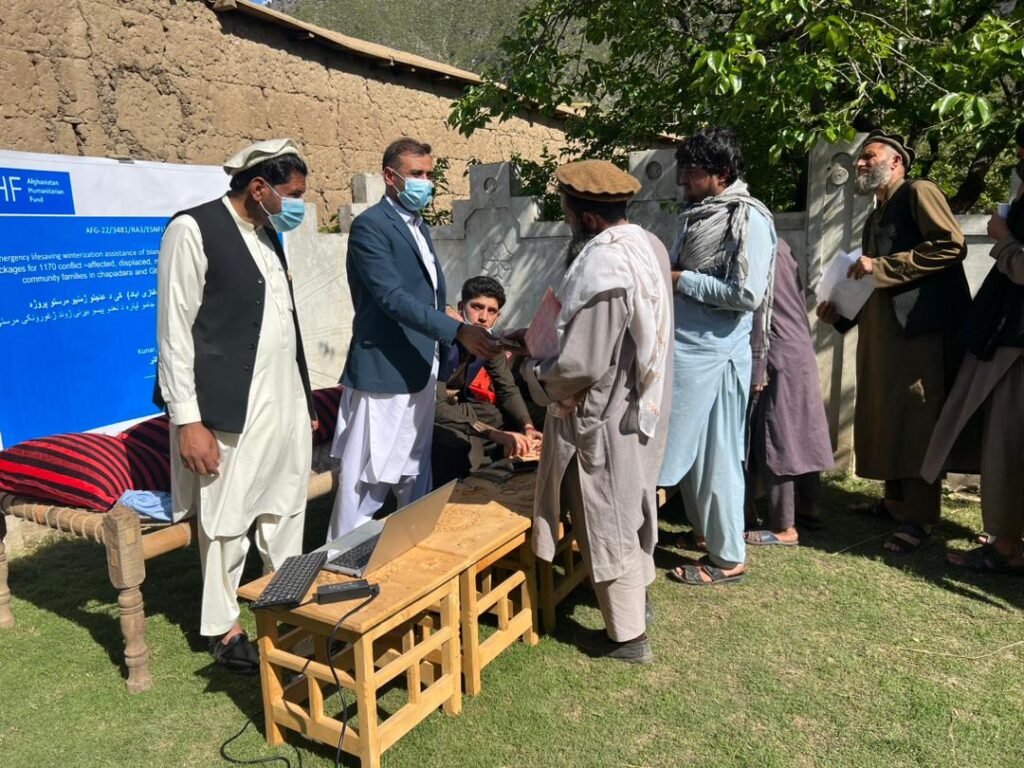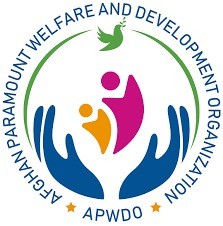Building a Resilient Future for Afghanistan Since 2010
A Decade of Dedication, A Future of Hope
Since 2010, the Afghan Paramount Welfare and Development Organization (APWDO) has been a steadfast partner to communities across Afghanistan. For over a decade, we have worked to address critical humanitarian needs and foster long-term development. While our commitment is long-standing, the recent period has demanded an intensified response to the country’s complex challenges. This page highlights our significant impact since 2021, showcasing our dedication to building a peaceful, equitable, and prosperous Afghanistan through sustainable, community-led interventions.

Impact (2021-Present)
Provinces Reached
Active in 16 provinces.
Individuals Supported (2023 - Present)
Over 22,526 individuals received direct assistance
Peacebuilding Beneficiaries
26,000 individuals engaged in peace initiatives.
Education for Children (2023-2024
5,600 vulnerable children, including 2,800 girls, enrolled in Community-Based Education.
Winterization Support (2022-2023)
Over 9,360 individuals received critical winter aid.
Financial Growth (2021-2023)
Organizational budget grew from $1.2M in 2021 to $1.8M in 2023, reflecting an expanded operational capacity
Our Thematic Focus
APWDO’s work spans seven critical areas, organized into three strategic categories to address Afghanistan’s most pressing challenges:
1-Crisis Response & Recovery
Immediate support for survival and stabilization.

Emergency Humanitarian Response
We deliver rapid assistance during crises, providing food, shelter, non-food items (NFIs), and cash support. Since 2021, we’ve implemented over 20 emergency response projects, including 15 funded by UNOCHA/AHF. In 2023–2024, we provided emergency cash assistance to 18,000 individuals across multiple provinces, helping vulnerable populations like internally displaced persons (IDPs), refugees, and pregnant/lactating women meet immediate survival needs and regain stability.

Health & Nutrition
We tackle public health challenges with integrated interventions. In Kunar province, since 2021, we’ve provided 16,000 pregnant/lactating women with $80 monthly cash transfers and nutrition coaching, reducing low birth weight by 38% and improving dietary intake by 92%. In Kandahar, we vaccinated 32,000 animals, cutting livestock mortality by 40%.

WASH (Water, Sanitation & Hygiene)
We address Afghanistan’s water security crisis with sustainable solutions. In Jawzjan’s Koshkak village, we installed deep wells to provide 250 families with direct home water access. Since 2021, our WASH interventions have reduced cholera incidence by 65% in Balkh and supported flood-resistant infrastructure in Samangan.
2-Sustainable Development & Livelihoods
Tools for long-term stability and economic growth.

Education
We ensure access to quality education for out-of-school children through Community-Based Education (CBE) centers. In 2023-2024, we supported 5,600 vulnerable children, including 2,800 girls, in emergency settings. Since 2021, we’ve established 360 CBE centers and rehabilitated 15 public schools, improving learning environments for thousands of students.

Agriculture, Livelihood & Livestock
We empower rural communities with climate-smart farming and veterinary care. In Badghis, since 2021, we trained 1,400 households in solar-powered drip irrigation, boosting crop yields by 65%. In Nangarhar, we connected 860 saffron growers to international buyers, tripling their incomes.

Peacebuilding & Governance
We build inclusive societies by resolving conflicts and strengthening local peace structures. In Jawzjan province, we resolved a four-year conflict between two villages by constructing a water canal and installing a water tank, providing potable water to 250 families. Since 2021.
2-Sustainable Development & Livelihoods
Tools for long-term stability and economic growth.
Women’s Empowerment
Our programs promote economic independence and community participation for women. Through vocational training in skills like cake baking and business management, women have launched businesses and achieved financial stability. Since 2021, participants in these programs have gained independence, reduced vulnerability, and become economic contributors to their households.

Stories of Change

Water as a Source of Unity in Balkh
A long-standing, bitter feud over drinking water plagued two communities in Balkh Province, leading to social division and hardship. APWDO intervened by constructing a new

Water for Harmony: Quenching Thirst, Healing Divides in Afghanistan
In Dehdadi district, Balkh Province, a longstanding enmity between Jarratakot and West Abad communities over potable water was resolved through APWDO’s “Together We Can Bring

Breaking Barriers: A Father’s Stand for Daughters’ Inheritance Rights
In Nahiri Shahi district, Balkh Province, a father publicly pledged to grant his daughters their inheritance rights, defying cultural norms. APWDO’s engagement with Islamic scholars

The Peace Nursery: A Haven for Women’s Rights and Livelihoods
In a society where women’s voices are often suppressed, APWDO’s “Peace Nurseries” provide a crucial, safe space for women to resolve conflicts and claim their

From Despair to Entrepreneurship: The Story of Ms. Majida
Ms. Majida, a 25-year-old woman in Balkh province, faced immense pressure as a returnee expected to support her family. Denied loans and facing humiliation from

